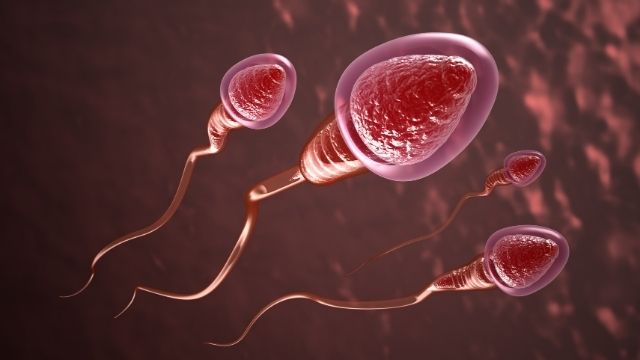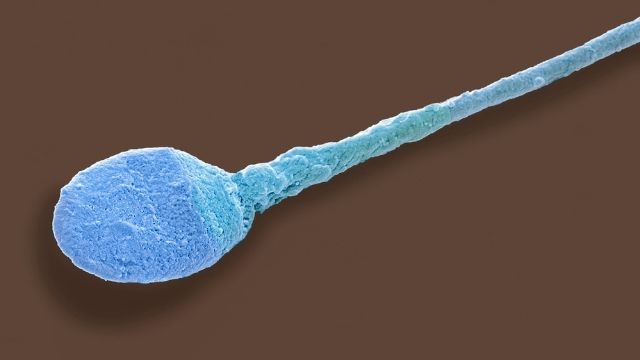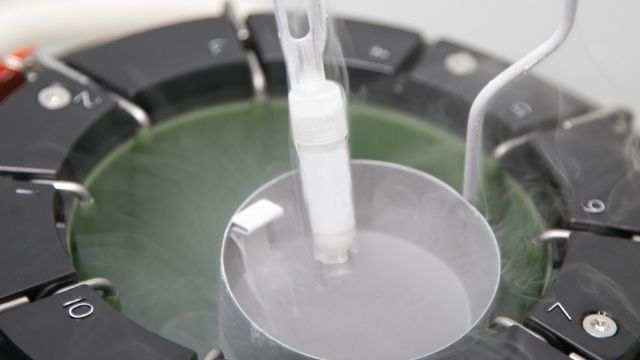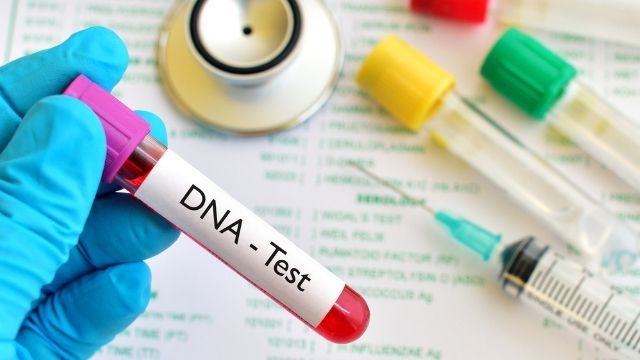Low Sperm Count Treatment

What is Low sperm count?
A low sperm count is also called oligospermia (ol-ih-go-spur-me-uh). Low sperm count is a condition related to male infertility that affects a lot of men worldwide. This male infertility problem indicates that there is less than normal sperm production in the male body. Because of this low production, enough sperms can not swim up to the uterus and result in the fertilization of the egg. Low sperm count makes it difficult for a man to make his female partner conceive.
It is a concerning condition that causes a problem in getting pregnant. But with timely diagnosis and the right treatment, men with low sperm count can also become the father of their own biological child.
Everything You Need to Know About Low Sperm Count
Meaning | Difference | Causes | Symptoms | Diagnosis | Treatment | When Doesn’t Work | What you can do | Getting pregnant
What is the meaning of Low sperm count?
The issue of decreasing semen quality got attention in the year 1992 when Carlsen disclosed that the mean sperm concentration fell from 113 to 66 million/ml in the past 50 years. There are many disorders including psychological problems, physical and hormonal problems that can cause infertility in males. Let’s understand some basic concepts related to sperms
Difference between normal vs low sperm count vs Azoospermia
- Normal Sperm Count
Normal sperm count range from 15 million to greater than 200 million sperm per millilitre of semen. One that has 15 million or more sperms per mm is considered to have a normal sperm count. One has a low sperm count if he has fewer than 15 million sperm per millilitre or less than 39 million sperm total per ejaculate.
- Low Sperm Count
When a man’s semen contains less than normal sperm count at the time of ejaculation, it indicates a low sperm count. Doctors call it oligospermia in medical terms. Having less than 15 million sperms per millilitre refers to a lower sperm count or oligospermia. It decreases the chance of fertilizing the egg of your partner, but don’t lose hopes because with the right treatment many men became fathers in the past despite having a low sperm count.
- Azoospermia
Another similar condition, azoospermia indicates the complete absence of sperm in the semen sample.
There are many factors that are involved in the process of reproduction, and out of these, sperm in your semen is just one factor. Some men with low sperm count successfully become the father of their children. Similarly, some men with normal sperm count are unable to do so. In some cases, even if you have enough sperm count, other factors are also important to achieve a pregnancy.
Sub Treatments For Male Infertility
We are one of the Best IVF Clinic in Delhi NCR!
69K
Subscribers
4.6 (615 reviews)
4.2 (904 reviews)
3.5 (265 reviews)

5 Out Of 5
Low sperm count causes
Production of sperms starts at the level of the brain as organs like the hypothalamus and pituitary glands produce hormones to trigger the production of sperm in a male in the testes. After the production of sperm, delicate tubes transfer them to mix with the seminal fluid. After this happens, sperms come out of the penis during ejaculation. Now, if there is any problem that occurs in this whole system, it will affect the production of sperms.
There can be a problem in the pituitary gland or in the testicles where sperms are produced. In oligospermia, this normal production of sperms can not take place, and it affects the normal quantity of sperm production.
Low sperm count symptoms & When to see a doctor
A man with a low sperm count will face difficulty in having a child. In oligospermia, there can be a problem with hormones, an inherited chromosomal abnormality, blockage in the sperm passage and dilated testicular veins.
There are many signs of low sperm count, these are as follows:
- The majority of the times there may be no symptom unless the male partner gets his sperm count testing done as the couple is unable to conceive.
- The men with low sperm count may face sexual problems like low sex drive.
- These men may feel some lump and pain in their testicle area.
- Many men will have hormonal abnormality which causes loss of body and facial hair.
You need to consult a fertility doctor if your wife cannot conceive after regular intercourse without using protection. You should also visit a doctor if you have a low sex drive, problems of ejaculation or had a history of penis or scrotum surgery.
Diagnosis of Low sperm count
You need to see a doctor when you can notice a change in your sex life. If a man cannot make his partner pregnant, he needs to consider it as the first symptom of infertility. A doctor will evaluate the sperm count to understand the reason behind the failure of getting pregnant. It is advisable to evaluate the female partner also simultaneously.
1st Step: Detailed history and Medical Examination:
The doctor will take your history and examine the genitals to see if the person has gone through surgeries, chronic conditions, and injuries. So, the doctors try to find out the problem first, and then they suggest the treatment which is appropriate for the patient.
2nd Step: Semen Analysis
Doctors will suggest doing a semen analysis test to diagnose the sperm count. Then, they will check the number of sperm appearing within a square or grid pattern. The doctors instruct you to carry out the following steps for semen analysis to be done. These include the following:
- They advise restricting you from ejaculating for the last two to five days before this test.
- They will ask you to collect the sperm sample by masturbation in the container preferably at the fertility clinic. Sometimes it can be collected in special condoms during intercourse but it is less accurate.
- Two weeks of the first round, you may need to give your sample for the second time. Sperm counts also often fluctuate. Because of such factors, most doctors will take and check two or more semen samples to ensure consistency between samples.
- To avoid using lubricants before giving the sample
3rd Step: Other Tests
- Scrotal Ultrasound: To look at the testicles and other supporting structures, doctors use ultrasound that is scrotal Doppler. This is a scrotal ultrasound that helps to identify the problem.
- Hormonal Testing: The doctor advises hormone tests to know about the production of the hormones by the pituitary gland and the testis. Low Testosterone levels and abnormalities in FSH and Prolactin levels may be responsible.
- Post-ejaculation Urine Testing: Sometimes, the sperms go back to the bladder but do not come out of the penis while ejaculating. Post ejaculation urine analysis identifies this condition.
- Genetic Testing: Another reason behind the low sperm count is genetic problems. A genetic test can reveal the abnormalities of the Y chromosome. It helps the doctors to understand the root cause of the problem.
- Testicular Aspiration or Biopsy: This test involves removing samples from the testicle with a needle. The results of the testicular aspiration can tell if sperm production is normal. If this production is normal, your problem is likely caused by a blockage or another problem with sperm transport.
- Specialized sperm function tests as DNA FRAGMENTATION INDEX: A number of tests can be used to check how well your sperm survive after ejaculation, how well they can penetrate an egg and if there’s any sort of problem in attaching to the egg. These tests are not performed routinely but only in special situations.
- Transrectal Ultrasound: By this ultrasound, the doctors check the prostate and seminal vesicle blockage. It tests the flow of sperm and not used commonly.
Low sperm count treatment
- Lifestyle Changes
It is seen that some lifestyle changes can improve sperm count like:
-
-
- Reducing the habit of smoking
- Decreasing stress
- Getting sufficient sleep
- Taking calcium and vitamin D
- Consuming food without harmful fat
- Increasing frequency of Sex and doing it more often around ovulation if planning a pregnancy.
-
- Surgery
Now in some cases, a varicocele can be surgically corrected and an obstructed vas deferens can be repaired as well. Also, through surgery, prior vasectomies can be reversed. In some cases where there are no sperms in the ejaculate, we can retrieve the sperm directly from the testicles or epididymis using certain sperm retrieval techniques that are simple and let us avoid surgery.
- Treating infection
The consumption of certain antibiotics can help in curing an infection related to the reproductive tract, but in most cases, it doesn’t always restore fertility in infertile men.
- Treatments for sexual intercourse problems
On visits to a fertility expert, he may prescribe various medication or provide counselling that may help in improving fertility in cases like erectile dysfunction or premature ejaculation.
- Hormone treatments and medications
Your doctor may also recommend hormone replacement or various medications in cases where the reason behind your infertility is high or low levels of hormones or in cases there are problems with the way the body uses hormones.
- Assisted reproductive technology (ART)
ART treatments involve extracting sperm through normal ejaculation, by a surgical procedure or from a donor, depending on the specific situation and need. The sperm is then injected into the oocytes or female eggs using intracytoplasmic sperm injection.
When treatment doesn’t work
In rare cases, some male fertility issues can’t be treated, and it becomes impossible for a man to father a child. In such cases, such couples can take help by using sperm from a donor or by adopting a child. Apart from the above-mentioned treatments, the following are some alternative medicines that may help.
Supplements that showed potential benefits on improving sperm count and quality include:
- Coenzyme Q10
- Panax ginseng
- Folic acid
- L-carnitine
- Ashwagandha
- Zinc
You should always consult with your doctor before taking any dietary supplements to review the risks and benefits related to it because some supplements taken in high doses (megadoses) or for extended periods of time might be harmful to your body.
Here’s some important information that will help you in getting prepared for the appointment and tell you what to expect from your doctor.
What you can do
- Be aware of any pre-appointment restrictions: Ask your doctor if you need to know to get prepared before an appointment. He will tell you about any restrictions or guidelines you need to follow.
- Write down symptoms: Before visiting a doctor, write down all the symptoms you are facing whether it’s related to your condition or not.
- Write down personal data: Write down all the personal data that may be required by your doctor in an appointment including stress or recent life changes.
- Know your family history: Keep information about male blood relatives, like brother or father that had fertility problems or other reproductive issues, that might indicate that you may have the same issue.
- Make a list of all medications: Make a list of all the vitamins, supplements or medications that you’re taking in case your doctor will ask you.
- Take your partner with you: Even if you have a male-specific infertility issue, take your partner along so to see if she has any problems as well.
Getting pregnant with a low sperm count
In the majority of cases, people can have a child with a low sperm count with treatment or assisted reproductive techniques like IVF_ICSI. According to our result of the diagnosis, the doctor will recommend the treatments which can help you be a father.
The condition of low sperm count is serious because it creates a restriction in achieving pregnancy. It is the source of psychological problems in couples. So, you need to improve if you develop a low count of your sperm. These are some preventive measures that you can take to ensure the pregnancy of your partner.
Patient Testimonials
It’s always the word of mouth that’s the best advice
Published On: 3 Dec 2018
London to Gunjan IVF: Mrs. Pragya's journey of parenthood |Treated for pregnancy care | Gunjan IVF
Published On: 7 Oct 2018
We are pregnant!! | Pregnancy after Fibroid Removal Treatment (Myomectomy)| Gunjan IVF World

Erica Benn
It was such a nice experience with Dr. Gunjan and how she tackle our case. I must recommend this clinic as one of the best IVF clinic in Delhi-NCR. Thanks to Dr. Gunjan to give me my motherhood.

Nitesh Kumar Thakur
Gunjan IVF World in Indirapuram, Ghaziabad is the best hospital for surrogacy and ivf services in Delhi-NCR. Dr. Gunjan Gupta is founder and director of Gunjan IVF World. Gunjan IVF is the best ivf center in Indirapuram , Ghaziabad. Treatments at affordable prices.

Akansh Garg
Dr gunjan gupta is one of best gyne in delhi ncr especially in ghaziabad she explains each n everything very clearly to avoid any confusion. staff is very supportive n helpful.

Manisha Pathak
Went for treatment at various places in Delhi since 2012. Then came to know about Gunjan IVF. Started treatment in October 2020. The treatment is going on and we are quite hopeful. Gunjan ma'am is a very good doctor who treated me well and the staff are also very good and helpful.

Erica Benn
It was such a nice experience with Dr. Gunjan and how she tackle our case. I must recommend this clinic as one of the best IVF clinic in Delhi-NCR. Thanks to Dr. Gunjan to give me my motherhood.

Nitesh Kumar Thakur
Gunjan IVF World in Indirapuram, Ghaziabad is the best hospital for surrogacy and ivf services in Delhi-NCR. Dr. Gunjan Gupta is founder and director of Gunjan IVF World. Gunjan IVF is the best ivf center in Indirapuram , Ghaziabad. Treatments at affordable prices.

Akansh Garg
Dr gunjan gupta is one of best gyne in delhi ncr especially in ghaziabad she explains each n everything very clearly to avoid any confusion. staff is very supportive n helpful.

Manisha Pathak
Went for treatment at various places in Delhi since 2012. Then came to know about Gunjan IVF. Started treatment in October 2020. The treatment is going on and we are quite hopeful. Gunjan ma'am is a very good doctor who treated me well and the staff are also very good and helpful.
Patient Guide
Along with treating our patients, we also guide them with the help of our educational blogs and videos.
Educational Blogs

Can obesity or being overweight have an impact on a man’s fertility?
Comprehensive Fertility Treatments | Gynaecology Procedures | Menopause Management | Pregnancy...

Does testicular temperature have an impact on male fertility
IVF specialists of the best IVF centre in Ghaziabad – Gunjan IVF World share an informative blog...

Is male menopause a myth or reality ?
IVF specialists of the best IVF centre in Ghaziabad – Gunjan IVF World debunk the myths about male...
Educational Videos

What is TORCH test in infertility and why is it done?
There are numerous tests that are available to infertile couples that are recommended by some doctors, which might help them determine the cause of their infertility. One such test is the TORCH test.

What is Prolactin Hormone?
Prolactin is a hormone produced by the pituitary gland present at the brain’s base. It is best known for its role in lactation, or milk production, in breastfeeding women.However, Prolactin also plays other important roles in both men and women, such as regulating the immune system, stimulating the growth of new blood vessels, and influencing behaviour and reproductive function. In this blog, we will explore what Prolactin is, how it works, and what happens when there are imbalances in prolactin levels.

Frequently Asked Questions about Low AMH
Primordial and Preantral follicles produce AMH. So the AMH level indicates the number of eggs or egg reserves you have in your ovary. Putting simply, if your AMH level is low, then the number of eggs in your ovary is less.
Frequently Asked Questions
Can obesity or being overweight have an impact on a man’s fertility?
Comprehensive Fertility Treatments | Gynaecology Procedures | Menopause Management | Pregnancy Care | Maternity & Birthing Call +919990044555A short article by IVF experts...
Does testicular temperature have an impact on male fertility
IVF specialists of the best IVF centre in Ghaziabad – Gunjan IVF World share an informative blog on one of the most ignored factors of male infertility. It is an alarming fact to...
Is male menopause a myth or reality ?
IVF specialists of the best IVF centre in Ghaziabad – Gunjan IVF World debunk the myths about male menopause through this informative blog Menopause as a term is extremely common...
















